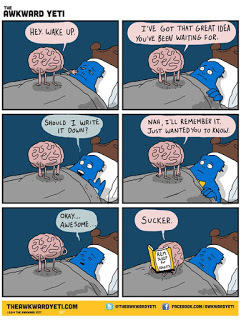It’s All About the Dialog II

I’ll begin today’s dialog class with a reminder to keep it visual. In all fiction writing you’re setting a scene. Whenever conversation takes place, there’s more going on than just the words
In last week’s dialog example (don’t make me repeat myself – it’s right there below this post) I think plainly stating that Eve was laughing at Adam has a lot more impact than slipping in the word “chortled,” and letting us see what’s happening between them involves us in the conversation so much better than the one-word clue that Adam whined. If you paint a word picture, your reader will be able to accurately guess when the dialog is loud or soft, friendly or not. In the revised example, I think you got the idea that Eve snapped at Adam when she said, “not anymore.” Even if you didn’t, you probably understood the tone well enough.
I think the reason “said” substitutes are pet peeves for so many editors is that it’s the easiest way to express some thoughts, and nobody likes a lazy writer. They want to know you’ve really thought about what you want to say and have searched for the best way to say it. So go ahead and use the old reliable word, “said” along with other, equally neutral words like “replied” or “asked” and find better ways of letting us know that your character smiled, hissed or sputtered.
Now even the use of “said” won’t save you from another dialog evil. Consider this:
Tommy was startled when he opened the door and mike walked in.
“What are you doing here?” Tommy asked nervously.
“I’m looking for you,” Mike said angrily. “Where have you been all day?”
“I had to leave,” Tommy said softly. “The thing in the closet sent me away.”
“Thing in the closet?” Mike said fiercely. “I’ve had enough of this nonsense. I’m going in there and toss everything out.”
“No, no,” Tommy said, frantically. “If you go in there it will kill you.”
Hopefully you noticed and maybe even got a little uncomfortable with the adverbs in this passage. Adverbs are a lazy way to try to make dialog more expressive. They are almost always unnecessary if the dialog is well written. Personally, I don’t think you ever need to use an adverb in your writing again in life. For the purposes of dialog they’re easy to do without. Just think of another way to express the same thoughts and feelings.
Next week, a few more tips on keeping your dialog realistic.
Published on June 06, 2015 17:01
No comments have been added yet.



